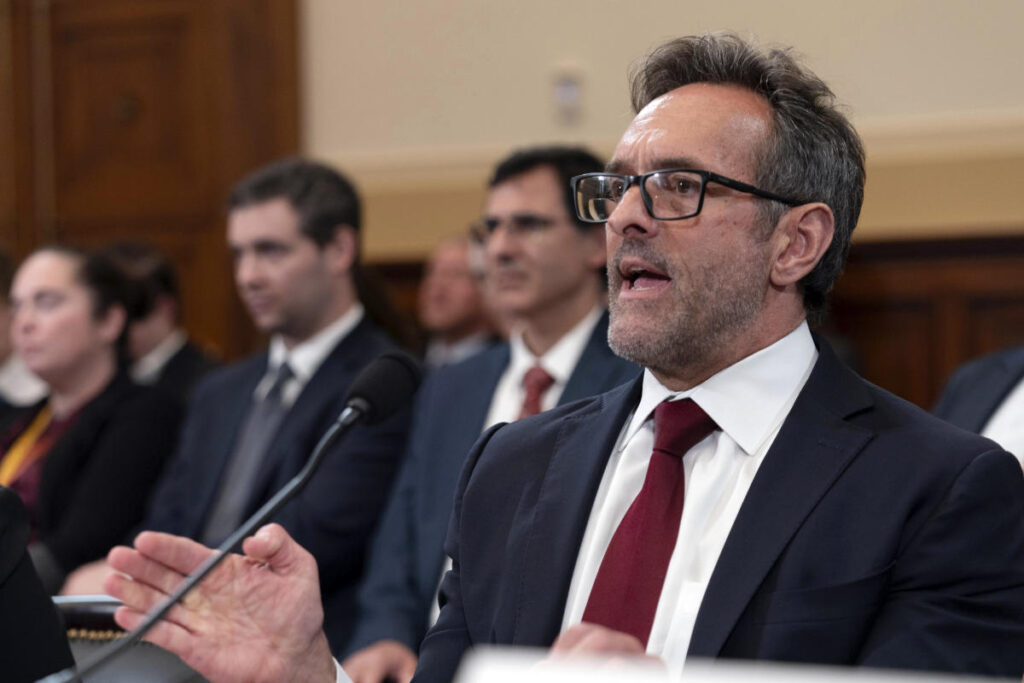On a recent Wednesday, President-elect Donald Trump announced plans to appoint a new U.S. special presidential envoy for hostage affairs, signaling the departure of diplomat Roger Carstens, who has been notable for negotiating recent prisoner swaps. Trump’s choice for the position is Adam Boehler, the former CEO of the U.S. International Development Finance Corporation. Boehler’s experience includes serving as a lead negotiator for the Abraham Accords, which facilitated the normalization of relations between several Arab nations and Israel. In a statement on Truth Social, Trump asserted Boehler’s capability, highlighting his extensive bargaining experience with formidable players, including the Taliban, while emphasizing the United States’ superiority under his leadership.
This significant transition comes at a time when the role of special envoy has become increasingly vital, involving sensitive negotiations to secure the release of Americans wrongfully detained or held captive by foreign entities and non-state actors. Trump’s decision to replace Carstens—who was previously praised for his effective work in high-stakes prisoner exchanges—has raised eyebrows, considering Carstens has been retained as a key appointee by President Biden following recommendations from hostage families and various commentators. Carstens, a former Green Beret and deputy assistant secretary in the State Department, played a crucial role in negotiating high-profile exchanges, including a recent multi-country deal with Russia that led to the release of detained Americans.
Carstens garnered considerable recognition for his involvement in complex prisoner swaps, most notably the exchange that released Wall Street Journal reporter Evan Gershkovich alongside Marine Paul Whelan. His work included negotiating a controversial deal with Russia that involved the exchange of notorious arms dealer Viktor Bout for WNBA player Brittney Griner, who faced charges of marijuana possession in Moscow. These negotiations, particularly the Griner-Bout exchange, sparked debate among conservative critics who argue such deals may create a precedent that encourages foreign adversaries to detain Americans for leverage.
Despite the criticism of his actions, Carstens remained resolute in his stance regarding the importance of securing the release of U.S. citizens, maintaining that the lives and freedom of Americans are paramount. He has articulated a commitment to using every available resource to negotiate the safe return of individuals wrongfully imprisoned abroad, declaring that the government will strive to provide the best efforts for those families affected. This sentiment reflects a broader approach valuing the lives of Americans endangered by unlawful detentions, asserting a moral and pragmatic duty to act.
The dynamics surrounding hostage negotiations highlight the challenges and ethical dilemmas faced by U.S. policymakers in balancing national security with humanitarian concerns. The debate generated by decisions to negotiate high-stakes exchanges illuminates the complex nature of diplomacy where actions can often lead to unintended consequences. Critics of these prisoner swaps argue that they may incentivize further detentions, putting additional Americans at risk, while advocates stress the need to prioritize the freedom and safety of captured citizens.
In appointing Boehler, Trump aims to infuse the position with fresh leadership while still pursuing an aggressive strategy to bring home American citizens held abroad. The contrasts between Boehler’s and Carstens’ approaches and their respective backgrounds raise questions about the future of U.S. hostage policy. As Boehler steps into this sensitive role, he will face high expectations to navigate the intricate landscape of international negotiations concerning U.S. citizens, continuing the tradition of advocating for their rights and safety in the face of complex global challenges and diplomatic realities.

